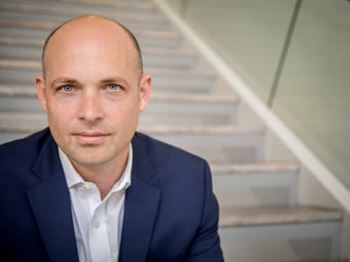Montclair State University psychology professor Jason Dickinson received a grant from the National Science Foundation (NSF) to research the effectiveness of remote methods of interviewing child crime witnesses and victims in areas that do not have access to forensic professionals.
The $311,753 award, which is Dickinson’s fourth NSF grant since 2007, will fund a three-year study of the use of remote computer technology—or, more simply, video chat—in order to conduct interviews with children, specifically on the subject of child abuse. But according to Dickinson, the implementation of the technology is not the issue.
Through his research alongside Debra Poole of Central Michigan University, he hopes to determine whether or not the reliability of the child’s testimony decreases when the interview is not conducted face-to-face.
“The goal is to learn what the child has experienced,” explained Dickinson, who is the director in the Center for Child Advocacy and Policy at the university. “The child’s memory is akin to evidence, so it has to be collected in a way that ensures its reliability.”
In the first part of the study, a group of 215 children ages 4 through 8 will be recruited from local families and brought into an on-campus lab to undergo testing. These tests will present the children with a variety of demonstrations filled with unexpected situations and surprises. After two weeks, the children’s parents will read them short stories detailing the demonstrations they experienced in the lab, but the accounts will contain both facts and falsities. Upon their return to the lab, the children will then be asked to recount their experiences in either a face-to-face or remote interview.
“We’re going to investigate whether children’s level of cognitive control and executive function generates unacceptable error rates with remote technology,” said Dickinson.
According to Dickinson, 20 percent of the United States population lives in rural areas and does not have access to forensic experts who are trained to handle interviews with young children for specialized investigations. He hopes that remote technology will solve this problem.
“We are looking to bring forensic interviewing expertise to remote parts of the world—but first we have to make sure the technology is safe and effective,” he explained. “That’s not a foregone conclusion when you’re talking about young children.”
Dickinson explained that his passion for research began when he was an undergraduate at Central Michigan University, where he volunteered in a professor’s lab. Dickinson later received his doctorate from Florida International University. He explained that he had always been interested in psychology and law, and his most recent studies in forensic psychology are a perfect marriage of the two fields. Though eyewitness testimonies of children have been the focus of most of his research in the past, this most recent project is the first to deal with remote interviewing.
“Through this grant, the Center for Child Advocacy and Policy is leveraging the endorsement and resources of the NSF to improve the lives of children who have witnessed crime or have been its victim,” College of Humanities and Social Sciences Dean Robert Friedman said in a press release. “What could be more important?”



